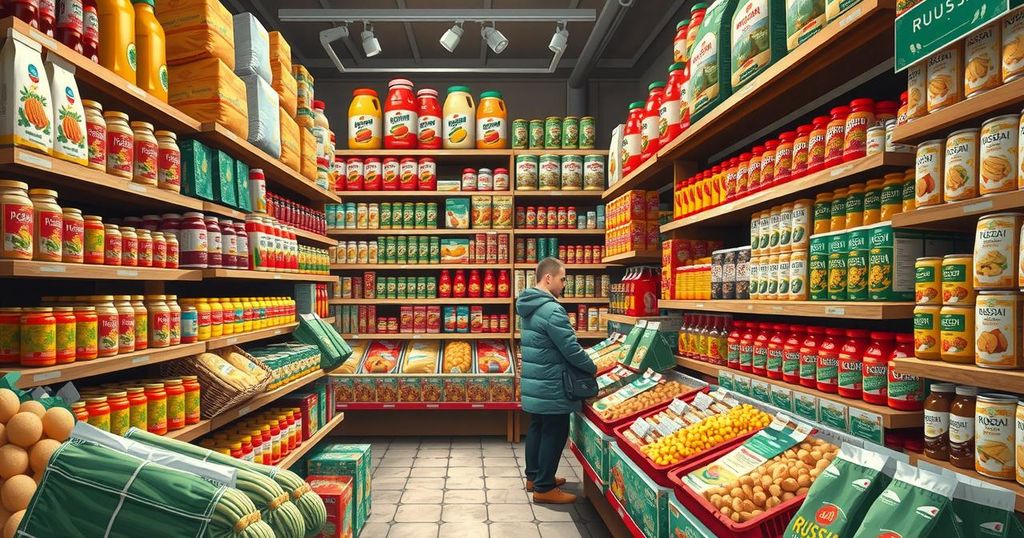World news
AFP, AFRICA, ASIA, CHINA, CRIMEA, CUBA, DANONE, EUROPE, EUROPE/ASIA, EXTREMISM, MARIA, MARIA TYABUT, MCDONALD ’ S, MEXICO, MILITARY, MOSCOW, MY, MYTISHCHI, NIGER, NORTH AMERICA, RUSSIA, SANCTIONS, SECURITY, SERGEI, SERGEI DUZHIKOV, SOUTH AMERICA, UKRAINE, VENEZUELA, VKUSNO I TOCHKA, WAR
Michael Grant
0 Comments
How Western Sanctions Altered Daily Life for Russians
- 10 Niger soldiers killed in militant attacks, reports say.
- Sergei and Maria exemplify life in an adapted economy.
- Families are finding alternatives amid sanctions, thriving relatively well.
- The withdrawal of well-known brands created a shift to local products.
- Resilience in the face of rising prices reported by many Russians.
Adaptation to Sanctions—A Local Perspective
Sanctions imposed by Western nations in response to the conflict in Ukraine have shaped a surprisingly adaptable economic landscape for many Russians. A couple from Mytishchi, a suburb of Moscow, indicates that they have managed relatively well amid these challenges. Sergei Duzhikov and Maria Tyabut, who reside in a recently renovated two-bedroom apartment, illustrate this point with their ability to maintain a middle-class lifestyle while choosing alternative products, notably enjoying Russian-made Camembert cheese and driving a Chinese vehicle as preferred staples in their lives.
Impact of Brand Withdrawal on Daily Life
While Western sanctions have led to a notable withdrawal of many brands, shopping in supermarkets showcases a noticeable shift towards domestic alternatives. Basic needs have been met by local producers, leading individuals like Maria to assert that Western brands have not left a significant gap. For instance, substitutions for yogurt previously produced by Danone, as well as fast-food options, reflect a growing market for homegrown items, with Maria stating, “There’s a wide and rich selection” despite the challenges posed by some missing goods.
Economic Strain Yet Resilience Amid Changes
However, the economic situation is not without complications. Despite an overall sense of stability, Maria and Sergei have felt the effects of the economic changes, especially when it comes to sourcing certain products. Moreover, Sergei recalled frustrations encountered during car repairs due to delays in obtaining parts for his vehicle, a stark reminder that the repercussions of sanctions linger. Nevertheless, both find comfort in their evolving lifestyle, stating that while prices have risen slightly, they do not perceive themselves as suffering financially, maintaining a sense of contentment about their situation.
In summary, Sergei Duzhikov and Maria Tyabut’s experience in Mytishchi reflects a broader resilience seen among many Russians amid Western sanctions. Despite losing some imported brands, the couple’s ability to successfully adapt their lifestyle shows a certain level of economic relief, emphasizing the vital role of local markets in fulfilling consumer needs. While challenges remain—prompting some adjustments—their overall sentiment remains one of contentment and stability.




Post Comment